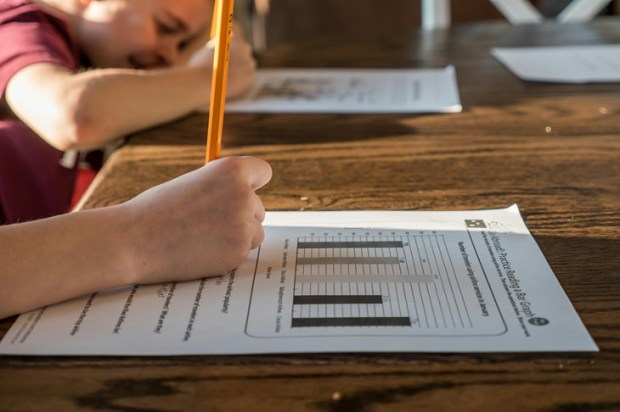Think back to university or high school. Were you or your classmates ever left bored or wondering whether one of your subjects would ever help you get a job? When was the last time most of us wrote an essay on literature or foreign policy, or solved an advanced mathematical equation? You’re not alone: An Australian government survey recently reported that more than ‘a quarter of the nation’s graduates say their degrees are close to useless for their jobs’, while more than ‘half of employers say management and commerce degrees, the most popular field of study, are not important.’ Yet Australian taxpayers spent about $87 billion on education last year, $31 billion of which is spent on university education. Is that money well spent?
Economics Professor Bryan Caplan’s provocative, well-written and sometimes witty book, The Case Against Education: Why the Education System is a Waste of Time and Money, argues that taxpayers wastefully sponsor students to study courses that many won’t enjoy, don’t find relevant, don’t learn much from, and don’t remember much of after graduation.
So why do students study boring, irrelevant subjects? Graduating from university is valuable because it signals to employers that students are hard-working, capable, and ‘willing to tolerate serious boredom’ as demonstrated by years of study. Indeed, graduate salaries tend to grow dramatically compared to nongraduates— but mostly after they graduate. That’s called the ‘sheepskin effect’. The sheepskin effect even works for near-failing graduates, who still earn substantially more than students who drop out with one semester left—even though they’re often separated by sheer luck. By graduating, students signal their work ethic.
The problem? Taxpayer sponsored education encourages excessive credentialism. Competent high school graduates benefit from a university degree even if it doesn’t offer a career path, simply because it allows them to further demonstrate their pre-existing work ethic. But those too poor to enrol in university or complete it are effectively left behind when competing with tertiary graduates in the workforce. That’s because employers prefer to hire university graduates over high school graduates, even though both may be equally capable. State-sponsored higher education punishes university graduates by forcing them to engage in years of make-work while also punishing high school graduates who cannot afford university studies.
Moreover, and contrary to popular belief, students don’t gain critical knowledge, reasoning skills, networking, discipline and social skills from studying the humanities. Studies conducted by educational psychologists indicate that most students don’t learn these skills from the humanities, don’t transfer what they’ve learned to the workplace, and soon forget whatever they’ve learned as they don’t practice or use it again. Only a minority of students succeed in applying skills learnt in one setting, like the humanities, to new settings such as the workplace. And networking, discipline and socialising are just as available while working, or while studying subjects actually relevant to a future career.
The book’s title—The Case Against Education—is slightly misleading. The author believes education is valuable: it’s just that the current system is not effectively preparing students for future employment. The book argues that education should focus on drilling students in key skills like literacy, numeracy and professional writing, as well as vocational subjects and apprenticeships. Most importantly, people become skilled workers through time and experience on the job.
Caplan acknowledges that cultural education and the humanities also have value, but not for every student and not necessarily within the stifling confines of the classroom. Those who hate the humanities shouldn’t be forced to study them. Those who don’t should still be literate and learn how to write business letters (which few schools teach).
Caplan believes the emotional cost of schooling varies, but estimates that studying feels $280 worse per year than working, at least if your potential job pays $20,000.00 or more. The discussion of whether students benefit from increased education includes some guesswork, as the author admits. Still, putting a dollar figure on how much students suffer while studying boring coursework seems too speculative. But that’s a small part of the book.
The book’s arguments draw on research in economics, sociology, and psychology. On its face, at least, the book makes a strong case for reforming the education sector, where Australian taxpayers spend billions of dollars each year.
The Case Against Education makes for interesting reading, not just for educators, economists and policy-makers, but also for anyone curious about why students sit through so many years of often irrelevant coursework.
Vladimir ‘Zeev’ Vinokurov is a Melbourne solicitor.
This article originally appeared in the IPA Review.
The Case against Education: Why the Education System Is a Waste of Time and Money by Bryan Caplan is published by Princeton University Press.
Got something to add? Join the discussion and comment below.
Got something to add? Join the discussion and comment below.
Get 10 issues for just $10
Subscribe to The Spectator Australia today for the next 10 magazine issues, plus full online access, for just $10.


























Comments
Don't miss out
Join the conversation with other Spectator Australia readers. Subscribe to leave a comment.
SUBSCRIBEAlready a subscriber? Log in